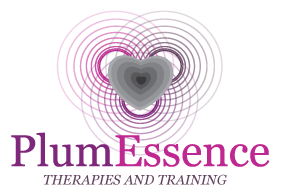This is the 23rd in a series of blogs, using answers I provided to pass Mental Health qualifications. This blog is the start of describing different types of depression, starting with post-natal depression.
As with many mental health subjects, they can all be massive topics with reams of books written on them. I will aim to break down post-natal depression down into 3 easy to read blogs, describing possible causes, how post-natal depression can affect individuals and the people around them, and how it can be treated and managed.
I strongly believe there is no one-size-fits all approach to managing any kind of mental health condition. It is the main reason why I am not a massive advocate of medication. I prefer to consider natural, healthy ways to recognise and manage any kind of mental ill health, tailoring each treatment and therapy to suit each individual. I do this from experience. It is what helped me which is why I believe it can help others too.
My own thoughts were written before I read the book Eyes Without Sparkle, by Elaine A. Hanzak which describes post-natal depression, from a very personal point of view, far better than I ever could.
Self-help measures for post-natal depression:
The most important is to admit to having problems and talk to someone.
Relaxation techniques including aromatherapy, self-hypnosis, as well as others, may help with sleep, which can suffer during boats of any depression.
Asking for help, sharing and finding the right support groups and perhaps meeting other mums outside of the formal meeting structure and can help to feel more friendship like and less like a patient. Seeking and accepting help from family or partner, now matter how small.
Not expecting too much of yourself, so perhaps just aiming to achieve 3 small things a day, especially aiming to ensure to eat the most nutritious foods available and as eating as regularly as you can.
Learning as much as you can about coping and managing strategies.
Possible treatments for post-natal depression:
Anti-depressants, as prescribed by a GP are considered to be a short-term solution.
Psychotherapy and other talking therapies, incorporating techniques such as CPT or IPT.
Diet and nutrition advice, help and counselling.
Local resources and treatments available to an individual experiencing post-natal depression:
a) Resources
GP’s and other NHS Trust healthcare professionals.
Local support groups, whether local authority, community, charity funded or other not-for-profits.
Family and friends support and encouragement including baby care and providing food for the mum.
Local complementary and holistic therapists can help with relaxation and provide treatments, including talking therapies such as counselling.
b) Treatments
Counselling, CPT and IPT.
Hypnotherapy, Aromatherapy, Massage, Reiki and other complementary therapies can all help in a variety of ways.
Anti-depressants as prescribed by a GP.
Managing Puerperal Psychosis include:
- Hospital usually specialising in psychiatric ill health, is considered best, to reduce the risk to both mother and baby, until the healthcare professionals feel the mum can cope at home.
- Community healthcare team involvement to allow mother to be at home with baby and any other family. The team could consist of psychotherapists, specialist nurses, occupational therapists and social services, to ensure the wellbeing of all the family involved.
Treatments a person with puerperal psychosis would require:
They are usually prescribed medication of anti-depressants and mood stabilisers, and anti-psychotic medication.
ECT – electroconvulsive therapy may be used as a last resort.
The next blog will start to consider Bipolar Disorder
Tracey of PlumEssence Therapies and Training is a qualified stress management consultant, mental health first aider, clinical hypnotherapist and body work therapist focusing on helping reduce and alleviate concerns connected to both physical and emotional wellbeing. Tracey is also a teacher and trainer, delivering workshops and accredited mental health courses.
Tracey is available for a no-obligation chat to see how we could work together on 01889 808388 or tracey@plumessencetherapies.co.uk
